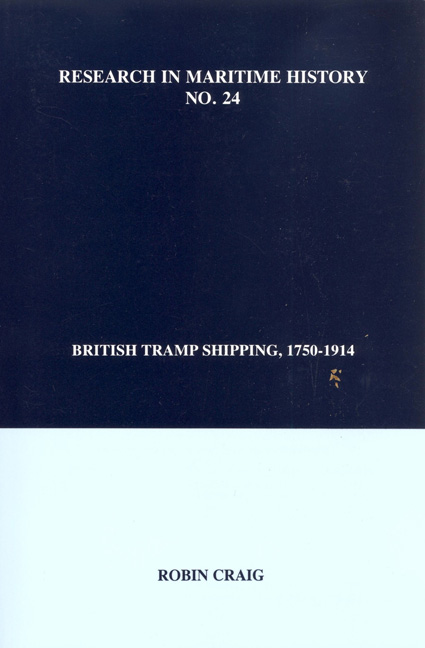Book contents
“The Copper Ore Trade”
from The Trades
Summary
Ofttimes to me come memories of fifty years ago
Of Valparaiso, Carrizal, Coquimbo, Callao;
Of sweltering in the tropics, freezing off the Horn,
Pamperos off the River Plate - sails to ribbons torn.
Of running down the Eastling, rolling in the Bay,
Soundings in the Channel (counting up our pay).
Slush lights lit the forecastle - a dark and dismal den,
Menu, salthorse, pantiles; wages two pounds ten.
Groping up the Channel, light gleams on our lee;
Daybreak - Lundy Island, first landfall to see.
Faces then were smiling, never a sneer or frown;
For we knew we'd shortly be in “dear old Swansea Town.“
But age is ever creeping on, my action's getting slow,
It won't be long ‘ere eight bells strike my final watch below.
Most of the world's commodity trades, if we think of them as the shipowner does in quantitative rather than value terms, were conducted in rather humdrum ships which tend to be neglected by maritime historians. The trades which gave sustenance to literally thousands of bulk carrying cargo vessels, both sail and steam, are rarely explored or analysed. It is very appropriate therefore, that Memorial University's Maritime History Group should direct the attention of scholars to some of the implications of a few of the world's major commodity flows from the point of view of the shipowner, the shipbuilder and the seafarer.
On most of the world's main trade routes at any time there would exist a demand for vessels having certain optimal characteristics. Routes no less than cargoes might determine, especially for most of the nineteenth century, the choice of sail or steam. The facilities offered by ports and harbours would be a critically important consideration to be carefully assessed by shipowners, charterers and merchants and would influence the kind of vessel to be employed. The relative volume/value ratio of the cargo to be carried would play its part in determining the freighting operation, and any peculiarities of the cargo itself would similarly modify the methods adopted in conducting the trade. Special skills or know-how would come to reside in shipowners and shipmasters who made particular trades their principal concern.
- Type
- Chapter
- Information
- British Tramp Shipping, 1750–1914 , pp. 59 - 84Publisher: Liverpool University PressPrint publication year: 2003

